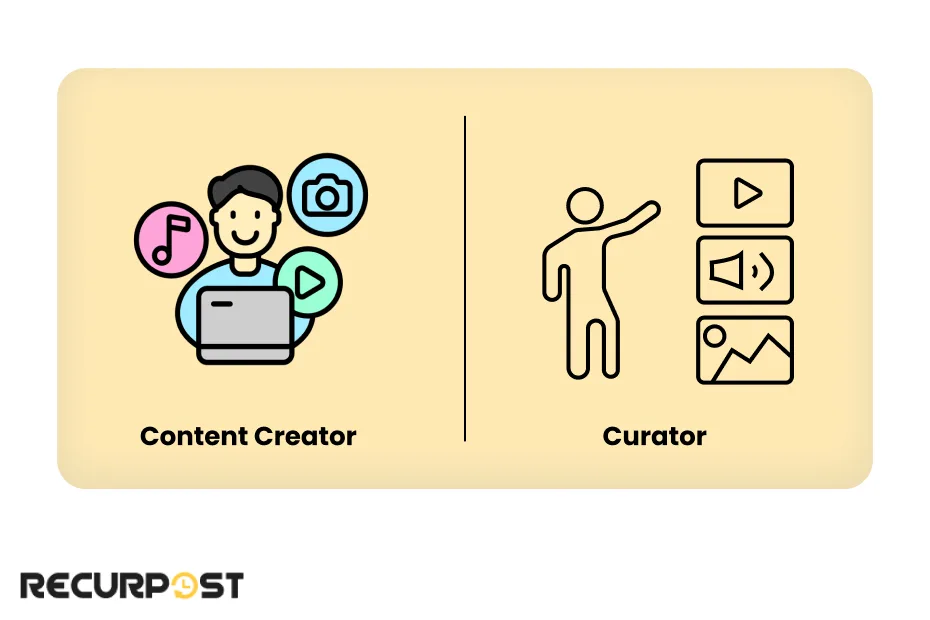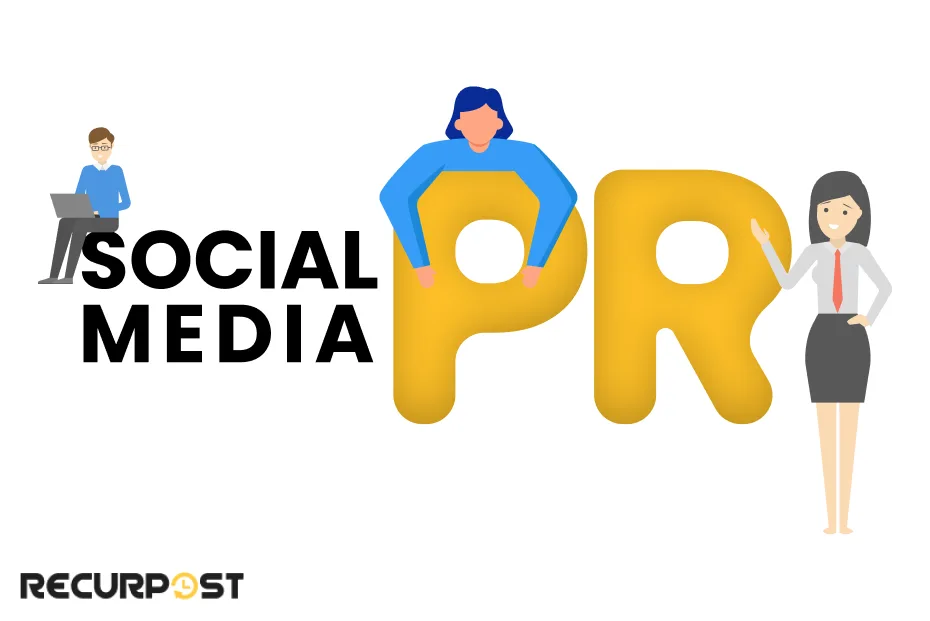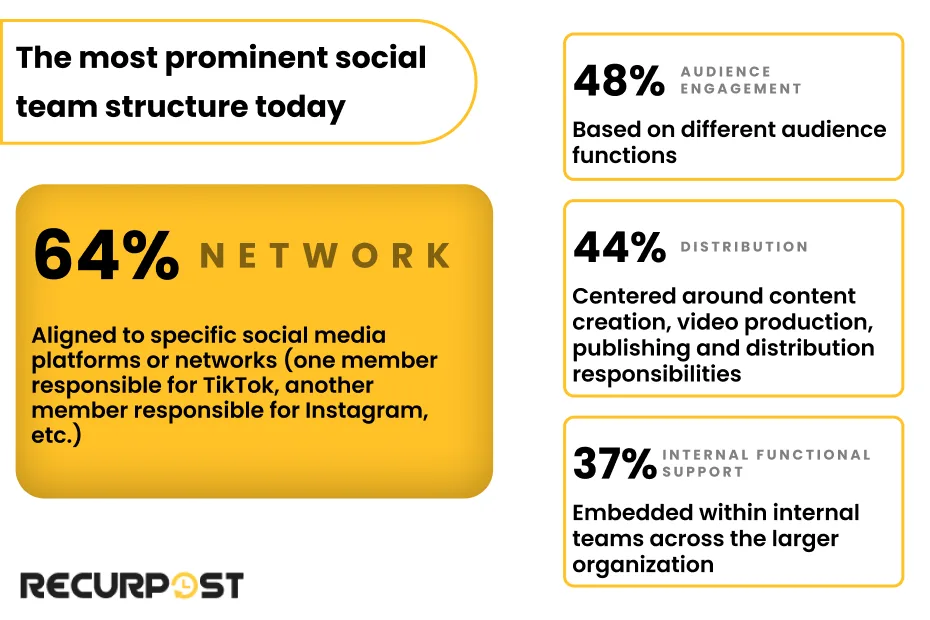Strategy, engagement, and data drive successful social media beyond mere posting. A well-planned social media team structure enables businesses to connect with audiences and grow online. Teams with content, strategy, and analytics experts create impactful campaigns while adapting to digital trends.
A clear team structure improves workflow, boosts collaboration, and accelerates campaign execution. Strategists, designers, and analysts working together enhance engagement, optimize results, and deliver better ROI.
TL;DR
- Importance of a clear hierarchy: roles—from Director to Specialists—must be well-defined to improve workflow, collaboration & ROI.
- Key roles outlined:
- Director & Manager: devise strategy, oversee content and performance;
- Creators / Community Managers: craft content and engage audiences;
- Advertisers & Analysts: run paid campaigns and measure metrics;
- Designers, Influencer/PR/HR/Brand Managers: support visuals, partnerships, culture, and brand voice.
- Team structure models described: centralized, hub‑and‑spoke, multi‑hub and holistic—each balancing brand consistency, localization, and integration.
- Stakeholder involvement essential: execs, department heads, legal and vendors all contribute to planning, compliance, and resource alignment.
- Hiring tips: look for diverse skills (copywriting, analytics, design), cultural fit, adaptability, teamwork, organizational skills.
- Process best practices: set goals, plan collaboratively, track progress, enforce deadlines, support the team, and iterate.
Social Media and Team- Definition, Roles and Responsibilities
The World is on social media, and so are you!

Definition
Social media includes websites and apps where users create, share, and interact with content. These platforms enable businesses to communicate with audiences through text, images, videos, and links. Facebook, Instagram, LinkedIn, X, and TikTok serve as spaces for real-time engagement.
A social media management team manages a brand’s presence across various platforms. This team includes social media managers, content creators, community managers, and analysts.
The team strategizes, creates, and monitors content, engages with audiences, and analyzes metrics to enhance visibility. Collaboration among team members crafts effective strategies that align with business goals.
Roles & Responsibilities
- Growing Business Through Social Media – Social media teams expand business reach through strategic content, targeted ads, and audience engagement across platforms.
- Content Creation & Management – Teams create engaging posts, visuals, and videos while maintaining a consistent brand voice across channels.
- Social Media Platform Management – Teams manage social accounts, schedule posts, and align brand messaging with marketing goals.
- Performance Tracking & Optimization – Teams analyze metrics, track KPIs, and refine strategies to boost engagement and conversions.
- Community Engagement & Trend Monitoring – Responding to audience queries, building relationships, and staying current with social media trends.
Behind The Scenes
The Social Media Team Structure Hierarchy

A well-defined social media department structure executes strong marketing strategies. It outlines roles from content creators to analysts, ensuring a seamless workflow.
The standard social media team organizational chart places the Social Media Director at the top, overseeing the Social Media Manager, who supervises specialized team members. Specialized roles include Content Creators, Community Managers, Advertisers, Analysts, Designers/Editors, Influencer Managers, and PR specialists. Each role reports to their immediate supervisor, establishing clear accountability throughout the team.
Intro to social media marketing, a clear team hierarchy helps businesses create engaging content, track performance, and optimize growth strategies. Marketing, PR, and customer service departments actively participate in social media efforts.
The involvement of these departments in social media efforts can be seen in these numbers:

- 70% of efforts come from marketing personnel.
- 69% of efforts come from public relations.
- 26% of efforts come from advertising. [Go Globe]
Now, let us read as we move ahead about the personnel involved in the social media team and their responsibilities:
1. Social Media Director
The Lead of Social Media Team

A social media director manages a brand’s online presence, combining strategic thinking, data analysis, and creativity. The director develops strategies to enhance engagement and grow audiences across platforms.
Social Media Director Duties and Responsibilities
- Meets with stakeholders to identify goals and align expectations
- Develops content strategy aligned with marketing goals, balancing immediate needs with long-term objectives
- Oversees content creation across written posts, videos, and graphics
- Manages content distribution across platforms with consistent messaging
- Sets up posting schedules with automation tools for content publishing
- Monitors metrics, including engagement, reach, and conversions, to determine effective strategies
- Reports findings and adapts strategies based on data for continuous improvement
Social Media Director Skills
- Understanding SEO ensures content reaches both existing followers and potential new customers.
- A social media director adapts brand tone and voice across posts for cohesive messaging.
- Managing multiple campaigns across platforms requires strong organization and time management.
- The director leads content creators, specialists, and managers, with delegation and motivation skills being crucial.
- Analyzing engagement data and conversions informs decisions about content and strategy.
2. Social Media Manager
The Head of Social Media Team

Social media managers function as crisis management specialists beyond posting updates. Their responsibilities encompass brand management and team leadership.
Social Media Manager Responsibilities
- Develops strategies aligned with business goals, setting objectives for engagement, traffic, and brand exposure
- Plans campaigns, establishes goals, and sets deadlines
- Builds brand awareness and online reputation
- Analyzes data to measure post success, campaign performance, and overall strategy effectiveness
- Maintains communication with key stakeholders, including clients, marketing teams, and other departments
Social Media Manager Skills
Soft skills: Social Media Marketing Managers need creativity, copywriting abilities, and design sensibility as core soft skills. Team players with leadership qualities who align with the company culture make ideal candidates.
Hard skills: Social Media Managers require industry knowledge, connections, digital expertise, understanding of social media trends, proficiency with management tools, SEO knowledge, and client service abilities. Select team leaders who share knowledge and mentor others.
3. Social Media Content Creator and Curator
The One with the Right Words

Content creators produce original posts, videos, and images tailored to brand audiences, focusing on creativity and storytelling. Curators select and organize existing content, maintaining brand voice and enhancing engagement.
Key Responsibilities
- Monitors industry news
- Creates both micro and macro content
- Shares and publishes content across social media platforms
- Maintains an updated social media content calendar
- Collaborates with designers
Skills
- Manages social media platforms and content management systems
- Applies SEO basics
- Demonstrates time management abilities
- Conducts effective research
- Exhibits strong copywriting capabilities
4. Social Media Community Manager
The person who’s always ready for a conversation!

Community managers interact with audiences, responding to brand mentions, answering questions, and thanking customers. They may use personal profiles to interact on behalf of brands.
Key Responsibilities
- Engages in conversations where the brand receives mentions or comments.
- Manages brand advocates and enthusiasts.
- Builds relationships between brands and audiences.
- Develops brand visibility when using personal profiles.
- Executes social listening strategies to monitor audience sentiment.
Skills
- Communicates clearly in written and verbal audience interactions
- Understands and responds to community needs and concerns
- Manages crises, resolves conflicts, and offers solutions
- Develops engaging content that fosters community participation
- Tracks and analyzes community engagement metrics to improve strategies
Difference Between Community Manager and Social Media Manager
| Aspect | Social Media Manager | Community Manager |
| Primary Focus | Brand promotion & content strategy | Relationship building & engagement |
| Objective | Increase brand visibility & engagement | Foster loyalty & build a strong community |
| Audience Interaction | One-to-many communication, broad reach | Targeted engagement, peer-to-peer interaction |
| Content Approach | Planned content calendar, campaign-driven | Reactive & proactive engagement, user-generated content |
| Key Metrics (KPIs) | Follower growth, engagement rate, click-through rate | Active users, response time, user-generated content |
| Career Path & Salary | $45K – $150K+ (Social Media Director level) | $40K – $140K+ (Director of Community level |
5. Social Media Advertiser
The one who knows how to budget for maximum impact

Social media advertisers create and manage paid campaigns across platforms. They target specific audiences, optimize ad performance, and align campaigns with marketing strategy. Advertisers boost brand visibility, drive traffic, and increase conversions through sponsored posts and display ads. They use data analytics to refine campaigns for the best ROI.
Key Responsibilities
- Collaborates with the Content Creator and Designer to develop advertising assets for target customers
- Defines and sets target audiences for social ad campaigns
- Manages the social advertising budget for campaigns
- Oversees A/B testing parameters and scheduling of the ads
Skills
- Deep understanding of social media platforms and strong budget management abilities.
- Confidence in taking calculated risks
- Hiring someone with good content creation skills, and an advertiser who can independently produce compelling messages for your target audience engagement.
6. Social Media Analyst
The One that Has the Answers

Social media analysts evaluate brand performance by tracking metrics and analyzing data. They provide insights into audience behavior, campaign effectiveness, and engagement trends. Analysts support teams with directions that enhance marketing strategies and achieve better results for online presence.
Key Responsibilities
- Study industry trends, tools, and social media platforms;
- Ensure the brand reaches its social media goals (awareness, sales, etc.)
- If you have a new business, define the audience;
- Provide reports when needed.
Skills
- Strong analytical skills;
- In-depth knowledge of social media platforms;
- Social science knowledge;
- Knowledge of social media management tools like RecurPost.
7. Social Media Graphic Designers/Video Editors
The one who plays with images and videos

A social media video editor specializes in creating and editing video content tailored for social media platforms. This role involves transforming raw footage into engaging videos that capture the audience’s attention, adhering to platform-specific formats and trends. They work closely with content creators to ensure that their videos align with the brand’s message and aesthetic.
With the evolution of video content, graphic designers play a major role in social media teams. Images, logos, and illustrations remain core components of a designer’s responsibilities.
Key Responsibilities
- Align work with brief requirements
- Work together with the content creator and also communicate with other members of the team and stakeholders.
- Create images, videos, animations, illustrations, logos, and other visual materials.
Skills
- Knowledge of design and video tools and software (Photoshop, Illustrator, CapCut, Final Cut Pro X etc.)
- Strong communication skills.
- Attention to detail.
8. Social Media Influencer Manager
The One that Loves People

The social media influencer manager manages relationships with local influencers, industry experts, and celebrity PR teams. This role ensures influencer content aligns with company values rather than managing business social platforms directly.
Key Responsibilities
- Get involved in social media campaigns that contain influencer activities.
- Maintain the relationship with influencers.
- Create & monitor content for influencers;
- Curate content for the company’s social media pages;
- Research new influencers, competitors, and audiences, and stay on top of the news, and technologies.
Skills
- Knowledge of the company’s industry news
- Strong social media expertise;
- Flawless communication skills;
- Project management.
9. Social Media PR
The One with the Good Story

The PR team is also your friend for both advice and content suggestions. Whenever there is an event coming up, a feature launch, or a press release, the PR team should work together with the social media team so this information appears on social media platforms too.
Besides all these important occasions, the PR team has a similar profile to the social media team. They should help each other whenever there is a chance.
Key Responsibilities
- Track social media conversations and trends related to the brand.
- Handle negative feedback and potential PR crises effectively.
- Plan and execute social media campaigns to boost brand visibility.
Skills
- Strong verbal and written communication skills for effective interaction.
- Ability to create innovative content that captivates the audience.
- Proficiency in analyzing data and social media metrics.
- Flexibility to adjust strategies based on changing trends and audience feedback.
- Skills in fostering connections with influencers and media personnel.
10. Social Media Human Resources
The One For the People, By the People, Of the People

Your HR team is not there only to help you recruit the social media team. They can also add great value to certain campaigns, and no employer branding campaign should happen without them.
Another scenario where you can collaborate with the HR team is when your audience asks HR/people-related questions. Nobody knows human behavior better than this team.
Key Responsibilities
- Develop and promote the company’s brand identity on social media to attract top talent.
- Utilize social media to share job openings and engage with potential candidates.
- Foster a sense of community by sharing employee stories and highlighting company culture.
- Manage any negative feedback or issues related to workplace culture or employee experiences.
- Monitor engagement metrics to evaluate the effectiveness of HR initiatives on social media.
Skills
- Articulate messages clearly and effectively across various platforms.
- Develop engaging content that reflects the company’s values and culture.
- Analyze social media metrics to assess and refine strategies.
- Handle sensitive issues tactfully and efficiently.
- Cultivate relationships with current employees and potential candidates through define engagement social media.
11. Social Media Brand Manager
The Voice behind Brand’s storytelling

A Social Media Brand Manager oversees brand identity across platforms, ensuring consistency while crafting posts that elevate the brand’s presence
Key Responsibilities
- Develop and implement social media strategies.
- Manage and grow brand presence on multiple platforms.
- Oversee content creation and brand messaging.
- Analyze campaign performance and audience engagement.
- Collaborate with other departments for cohesive brand messaging.
Skills
- The brand manager should be the social media team’s best ally for both big events and daily routines.
- Responding swiftly to negative feedback or issues to maintain brand reputation and trust.
- Understanding demographics and preferences to tailor content that resonates with target audiences.
- Designing and executing campaigns that effectively promote brand awareness and measure performance outcomes.
Social Media Team Structure
Numbers that Matters

Types of Social Media Teams
There are many ways you can build your team, for managing social media profiles, accounts, tools, and everything by various social media teams.
Agency Teams – Dedicated to One and Many Clients
An external agency manages social media for a brand, providing specialized expertise. Social media agencies collaborate with other companies and provide social media services for them. Therefore depending on the company’s size, the social media agency can dedicate one or more teams to a single client.
In-House Teams- The Backbone of Social Media Marketing Teams
The in-house social media teams can be categorized depending on their role in the company, the company’s structure, and the company’s size. A dedicated internal team handles all social media functions. There are management teams. These teams usually give feedback and approve what the agency’s social media team produces.
Centralized Teams- The Pool of Various Social Media Managers
Centralized teams consist of a dedicated group that oversees all social media efforts within an organization. This structure allows for consistent messaging, branding, and strategy across various platforms. These teams streamline decision-making and resource allocation, ensuring that all content aligns with the company’s overall objectives.
Decentralized Teams- The Heads of the Social Media Department Structure
Decentralized teams empower different departments within an organization to manage their social media efforts. Each team can tailor content and strategies to suit their specific audience and goals, fostering greater creativity and relevance. This structure encourages local engagement while allowing for unique brand expressions across various platforms.
Stakeholders’ Role in Social Media Team Structure
Stakeholders shape and support the social media team structure. Their involvement aligns social media activities with broader organizational goals.
Executive Leadership
Executive stakeholders provide strategic direction and resource allocation. Their buy-in determines budgets, staffing, and prioritization of social media within marketing. Teams report performance metrics to demonstrate ROI and secure continued support.
Department Heads
Department leaders from marketing, sales, product development, and customer service contribute insights about audience needs. Social media teams collaborate with these stakeholders for messaging accuracy and cross-departmental campaigns. Regular communication helps teams develop content supporting specific business objectives.
Legal and Compliance Teams
Legal stakeholders review social media policies and content guidelines to mitigate risk. Teams establish approval workflows with legal, particularly in regulated industries. This involvement protects organizations from compliance issues while maintaining operational efficiency.
External Partners
Agencies, vendors, and platform representatives provide specialized expertise and tools. Social media teams coordinate with these partners to enhance capabilities and stay current with platform changes. Clear communication ensures seamless collaboration and resource optimization.
Integrating stakeholders creates accountability, improves cross-functional alignment, and enhances the delivery of measurable business results. Successful teams establish feedback mechanisms and regular touchpoints with stakeholders to maintain strategic alignment.
Hiring a Social Media Team- Seeking People, Sourcing Talents
You know what type of team you need, how to manage it, what tools to use, but how do you build a social media team by hiring the right people?
Hiring a social media team requires consideration of:
- Skills and Experience: Look for candidates with relevant experience in content creation, analytics, engagement strategies, and social media optimization.
- Cultural Fit: Ensure they align with your brand’s values and culture for cohesive messaging.
- Diverse Expertise: Aim for a team with a mix of skills, including graphic design, copywriting, and community management.
- Adaptability: Seek individuals who can quickly adjust to trends and platform changes.
- Collaborative Mindset: Choose team members who work well with other departments for integrated campaigns.
Establishing Team Goals: Each Step in the Discipline Process Goes a Long Way
- Set purposes – for the business, for the team, for the campaign, and tasks.
- Plan – together with the team.
- Set deadlines – in order to measure progress and to work at full capacity, set realistic deadlines for every task.
- Track – both the team and the projects.
- Help – the team and let the team help you.
Social Media Team Skills– The Art of Engagement, One Skill at a Time
When it comes to social media, any skill, passion, or hobby can spark great ideas for the team. However, essential skills for teamwork include:
- Teamwork: Effective communication is crucial, not just technical skills.
- Time Management: Team members should be adept at meeting deadlines.
- Flexibility: Creativity thrives in adaptable individuals willing to take on various tasks.
- Organizational Skills: Employees should know how to plan effectively and maintain order in their work.
The Impact Players: How Social Media Teams Drive Campaign Success
The social media team plays a vital role in executing social media campaigns by strategizing, creating content, and engaging with the audience. They develop campaign themes, schedule posts, and monitor interactions across platforms.
Additionally, the team analyzes performance metrics to refine strategies and enhance engagement. Collaboration among team members ensures that each campaign aligns with the overall marketing goals, driving brand awareness and community engagement effectively for a wider social media presence.
Some of the viral campaigns are noted below:
#ShareACoke by Coca-Cola: This campaign encouraged consumers to find personalized Coke bottles with their names, promoting sharing and social engagement, resulting in increased sales and social media buzz.

#LikeAGirl: Always launched this campaign to challenge stereotypes about girls, empowering young women and sparking widespread discussions on social media.

#InMyFeelingsChallenge: Drake’s song inspired fans to create dance videos, going viral on platforms like TikTok and significantly increasing the song’s popularity and engagement.
Watch one of the viral #InMyFeelingsChallenge videos here.
Build a High-Impact Social Media Team That Delivers Results
Download our free guide “Social Media Team Structure” to build a smarter, results-driven team and boost your brand’s online growth.
Most Common Social Media Team Structure Models in Organizations
When examining social media team structures across organizations, certain models emerge as more prevalent than others. Based on industry research and market trends, the following structures are most commonly implemented:
The Centralized Hub Model (42% of Organizations)
The centralized hub model (42% of organizations) features a dedicated team managing all brand channels from a single department. This approach maintains consistent messaging across platforms.
The Hub-and-Spoke Model (28% of Organizations)
The hub-and-spoke model (28% of organizations) combines centralized strategy with decentralized execution. A core team develops guidelines while department members implement tactics for specific areas.
The Multiple Hub-and-Spoke Model (18% of Organizations)
The multiple hub-and-spoke model (18% of organizations) features regional or product-specific social media hubs operating semi-independently under central guidelines. This structure balances brand consistency with localized relevance.
The Holistic Model (12% of Organizations)
The holistic model (12% of organizations) integrates social media responsibilities across the entire organization with clear guidelines ensuring consistency. This structure works for organizations where social media embeds deeply in company culture.
These models continue to evolve as organizations adapt to changing social media landscapes, with the trend moving toward more integrated approaches that balance centralization and specialization.
Conclusion
A well-structured social media team drives brand growth through streamlined content creation and campaign execution. Defined roles optimize workflows, enhance performance, and maximize ROI. Marketing agencies provide expertise, tools, and guidance for scaling efforts and delivering impactful results.
Frequently Asked Questions
1. How can I measure a social media team’s performance?
To measure your social media team’s performance, you can use social media analytics tools to analyze the following metrics such as engagement rates, follower growth, and content reach to evaluate success.
2. What is the importance of collaboration in social media team structure?
Collaboration ensures that every aspect, from content creation to analytics, runs smoothly, which ultimately helps in determining the influence of social media success.
3. Can a social media team work remotely?
Yes, with the right tools for collaboration and communication, social media teams can effectively operate remotely.
4. How much does it cost to set up a social media team?
There is no fixed amount range for setting up a new social media team, as it depends on the services a core team and other team members provide. Generally, the average salary of a Social Media Manager in the United States typically ranges from $50,000 to $70,000 per year and will include other team members’ upkeeping costs.
5. How does the social media team help to garner the audience’s interest?
An effective social media team garners audience interest by developing a targeted social strategy that aligns with the brand’s goals and resonates with the audience. They create engaging content across multiple social channels through social media ads and other ways, fostering interactions through posts, stories, and comments.
6. How to build a social media team?
To build a social media team, define clear goals and roles, such as content creation, strategy, and analytics. Hire people with skills in copywriting, design, and social media management. Use tools for scheduling and analytics, and maintain open communication for collaboration. Regular training and feedback help the team stay updated with trends and improve performance.
7. What is the difference between a social media manager and a social media brand manager?
A social media manager primarily handles day-to-day operations, including content scheduling, engagement, and analytics.
A social media brand manager focuses on developing and maintaining the brand’s identity, ensuring that all messaging aligns with the brand’s values and goals.

Shubham Agrawal is a passionate content writer, with over a year of experience in this field. He excels in creating content in informative and creative way that aligns with readers. He juggle with words to create an engaging content.
